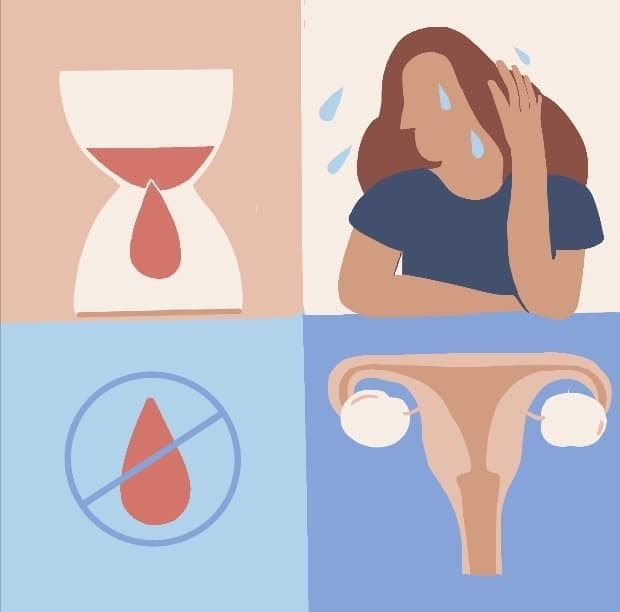Mothers and daughters share everything from family recipes to boss-lady skills! Have you ever talked to your mother about her past and present health? This is a conversation that we have ignored for a very long time.
While half of your genes come from your dad, your mom’s DNA, and her female health-related issues may affect your risk for certain conditions. Her answers to your health-related questions could help understand your health better. We can’t alter genetics but we can affect the other risk factors that can cause a disease. Therefore, having these conversations with our mothers can lead to healthy lifestyle changes and reduce the risk of diseases. Some changes that can reduce risk for disease are as follows:
- Modifying your lifestyle to reduce the chances of developing certain diseases
- Practicing prevention such as screenings, vaccinations and regular health check-ups
- Testing to detect a disease at an early stage
- Using medications or surgical treatments to prevent disease
Let’s take a look at some questions you could ask your mom:
What age did you reach menopause?
The age at which you enter menarche (or start menstruation) and the age at which you enter menopause (stop menstruating) are determined 50 percent by genetics and 50 percent by non-genetic factors. It’s important to know your mother's experience through menopause so that it gives you an idea of how many days of fertility you have left. If your mother has reached menopause under the age of 40 years, there is a high chance that a big role is being played by genetics. In this case it is important to know if your aunt and grandmother have also experienced the same thing. Other questions you can ask your mother could include checking if she suffered from depression, hot flashes, or mood swings. These could show what symptoms to expect and how one could manage these better.
Other lifestyle factors that can cause early menopause are as follows:
- Smoking
- Chemotherapy or radiation exposure to ovaries
- Surgery on the ovaries
Do we have a family history of breast cancer?
Almost 30 percent of all breast cancer cases are because of genetics – which means 30 percent of patients have a mother, aunt, sister, or grandmother who had it before them. Risk nearly doubles in a woman if her mother has suffered from breast cancer . There are two genes which play a role in this - mutated BRCA1 and BRCA2. These gene holders have a 50 to 85 percent risk of developing breast and ovarian cancer. Not just breast cancer, ovarian cancer is also passed on from female relatives.
What can you do about it?
- If you know that anyone in your family has a mutated BRCA gene, you mention it to your doctor first and secondly you start getting more screenings. As doctors we often advise patients to examine themselves in the shower. You can look for swellings or lumps in your armpit. The moment you notice one it’s important to get it checked.
- Besides genetics, there are certain risk factors that contribute to breast cancer. One such contributory factor is alcohol intake.
- Doctors also encourage breastfeeding as it acts as a protective shield against breast cancer and keeps your weight and alcohol intake in check.
Do we have a family history of PCOS?
Polycystic Ovarian Syndrome (PCOS) is characterized by multiple immature ovarian follicles. The signs and symptoms of PCOS include irregular periods, excess body hair, weight gain, darkening of skin in skinfolds. If your mother had PCOS, you have a 35% higher chance of getting diagnosed with PCOS.
Were you diagnosed with gestational diabetes during your pregnancy?
Gestational diabetes or diabetes during pregnancy indicates poor glucose control and can mean many complications for your baby. Your risk of developing gestational diabetes is as high as 30-40% if you have a family member who had the same condition or history of type 2 diabetes. 4 out of 10 women with gestational diabetes go on to have Type 2 diabetes. Asking your mother about her sugar control during pregnancy will help you care better for yours. It will also help reduce risk for long term diabetes.
Are you being treated for high blood pressure?
Your risk for heart disease is upped by 20% if your mother has it. If your mother has a blood vessel disease that affects all blood vessels in the body, it also increases your risk of stroke. You should also check if your mum is being treated for high blood cholesterol and if she has a minor heart condition.
Use this information to create a Disease Family Tree!
A comprehensive family tree of disease risk can come in handy and help you track a disease condition. Such a family tree will help you track the pattern of disease you may have inherited through your genes. Once the disease pattern is tracked you can identify and change the risk factors accordingly.
Lastly, try to get involved in keeping your mother’s health in check!
This blog discussed all the ways in which learning about your mother’s health can help you be better informed about your own. However, if you are able to, you must participate in informing your mother about things she can incorporate in her life to stay healthy. There are several things that you should encourage your mother to do:
- Yearly preventive screenings and check-ups
- Pap smear every 5 years
- Mammogram and self-breast exams after the age of 30 years
- Assess risk for Osteoporosis:
- Diabetes
- Hypertension
- Vitamin deficiencies: D and B-12
- Prescription renewal
- You can also check-in on her mental health
Final thoughts
It may not always occur to us but our mother’s health does affect our well-being and determine our risk for disease. It is important to know about her health conditions not just because you care for her but also to take care of your own health.
This information is provided for educational purposes and should not be construed as medical advice. Please consult with your healthcare practitioners before undertaking any changes in your diet or adding supplements.
We at Proactive For Her aim at creating a world-class medical experience for Indian women and adopt gold standards in every healthcare initiative whether it’s a teleconsultation or a webinar. What sets us apart from the rest is our liberal, convenient, and holistic approach to healthcare.
Proactive is a digital clinic for women, offering accessible, personalized, and confidential health-care solutions. We offer products and services for out-patient health concerns of Indian women, across their lifetime - from puberty to pregnancy to menopause. To know more on the sexual and reproductive health of women, visit https://www.proactiveforher.com/

